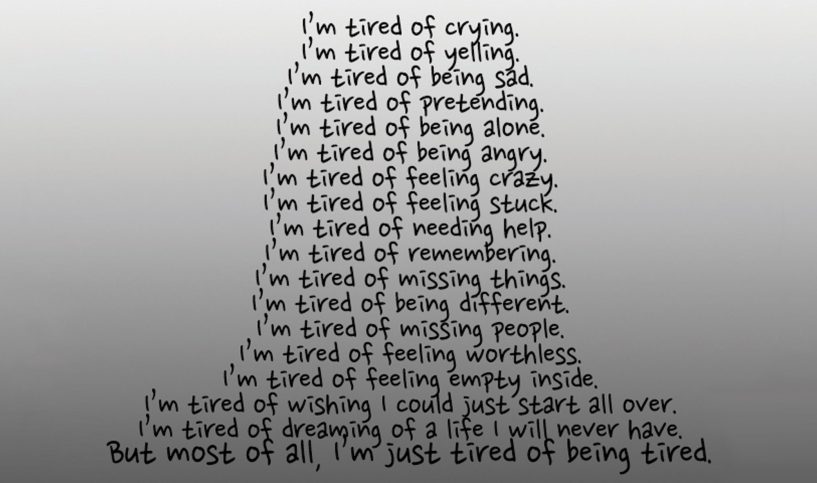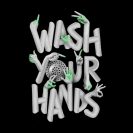Depression is the most unpleasant thing I have ever experienced . . . It is that absence of being able to believe that you will ever be cheerful again. The absence of hope. That very deadened feeling, which is so very different from feeling sad. Sad hurts but it’s a healthy feeling. It is a necessary thing to feel. Depression is very different. ~ JK Rowling
Depression has variously been described as ‘a black hole that swallows everything good’; ‘a bottomless pit into which all the light falls;’ or ‘an abyss; so deep as to be blackly bottomless, the edge of which is always too close to my feet.’
Sadness is an emotion that is part of the human condition, as is happiness, joy, anger, disgust, or excitement. Sadness is circumstantial and contextual. We can expect to feel different degrees of sadness when we experience any loss. We may feel a fleeting sense of sadness at losing a treasured pen, or we may be completely undone by sadness after losing someone we love. This is normal.
Depression is not like this. Depression is an internal emotional pain that won’t go away. The inner sense of self is gradually absorbed into a grey mist until it’s impossible to think of things that used to be enjoyable. It becomes an effort to do anything at all, and the simplest task takes forever because of drifting off into mental emptiness. While it is possible sometimes to identify an incident, which triggers the descent into depression, just as often it’s not. Physical symptoms and warning signs that depression is a possibility include changes in sleeping habits, daytime irritability, withdrawal from friends/family, change in appetite, decreased motivation and initiative, loss of enjoyment in life, and when severe, an inner sense of darkness and pain that feels overwhelmingly heavy.
Fortunately, depression is one of the most researched forms of mental illness on the planet. There is help available even here in Kuwait. Primarily, Cognitive-Behavioral Therapy (CBT) has been proven effective, however when the depression is severe, the most effective treatment is a combination of anti-depressant medication and therapy. When depressed clients come to see a therapist they often don’t have the mental, emotional, or psychological energy to invest in the process of getting better. That means they don’t really benefit from therapy. In that case, the recommendation is medication for 6 – 9 months while continuing CBT, with the eventual goal of tapering off the medication when the client has learned, practiced, and successfully implemented coping strategies, recovered emotional equilibrium, and feels fully functional again.
There are many different screens for depression and quite a number available free on the Internet. If you feel like you might be depressed, it won’t hurt to find a quick screen and answer the questions. Same for a friend. If you think your friend may be depressed, suggest a quick screen. If the results indicate that depression is a possibility, see a professional who can help you access the resources and help you need to make it better. Time and life tend to be the only treatment needed for sadness that comes from loss, but depression rarely resolves itself without help. In fact, data shows that without treatment, depression may last for years, eventually becoming a disorder that is very difficult to deal with. On the other hand, effective treatment has been demonstrated to limit and sometimes eliminate the cyclic nature of depressive episodes.
Avoiding depression begins with good self-care. Choosing to live life as if you matter to yourself. Proper, healthy lifestyle choices, maintaining a reasonable weight, regular exercise, and specific, planned time for mental, emotional, and psychological renewal. Taking up or going back to a hobby or passion, getting involved in something enjoyable. Limit stress and stressful situations. All of these things will help, but it’s important to remember that a part of depression is genetic. So if you read this article and it feels like a description of you, give yourself a gift and ask for help. Life shouldn’t have to hurt.
Susannah J. Schuilenberg, PsyD, MA, MREd, RPC, MPCP, ACS is a Clinical Coordinator & Supervising Psychologist at Soor Center for Professional Therapy & Assessment. For more information, please call 2290 1677, visit www.soorcenter.com or follow their Tweets @SoorCenterQ8.











